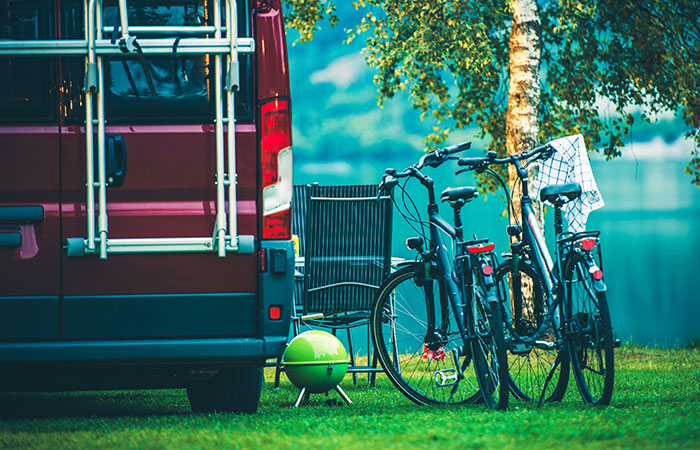Van life is ideal for those who prefer a nomadic lifestyle in this often congested and hectic day and age. It offers a blend of basic necessities and comfort along with the ability to freely and conveniently travel the world. This lifestyle has been long adopted by people who are reassessing their life’s priorities and has recently evolved into an entire movement.
Recent evolution of van life
Van life has grown in popularity over the last few years, especially since the start of the COVID-19 pandemic. A 2019 census observed that nearly 140,000 people in the U.S. have embraced this lifestyle, living in a variety of vehicles, including recreational vehicles (RVs), campers, and vans. As a result, sales of camper vans and RVs have increased by nearly 25 percent in the last year alone.
The effects of changing gas prices on #vanlife
Van life continues to grow day by day and is impacted by numerous external factors. With recent global trends, there has been a surge in fuel and gas prices. Vehicle owners, in particular, have felt this dynamic as they’re constantly at the pump. These rising gas prices are often difficult to predict and continuously call for budget changes and reallocation of resources.
Fuel prices are a vital consideration for many van life enthusiasts. As of April, gas prices were at an average of $4.22 per gallon across the U.S., up from $3.22 a month earlier. This is an increase of nearly 50 percent from the previous year.
Fuel changes disproportionately affect van life as the entire lifestyle is hinged on being on the road. Changing fuel prices have led to a significant increase in expenses for those living in their vans, which has made it necessary for van life enthusiasts to review nearly all of their decisions—leading many people to reassess the practicality of continuing their lives on the road.
Most of these vans run on fuel for both mobility and sustenance. If high fuel prices continue, they’re likely to lead to a budget crisis for some van and RV owners. This crisis is already beginning to be evident by how many more people are spending time at campgrounds recently than on the road.
Learn all about the #vanlife movement, including the pros and cons, as well as tips and tricks for becoming a full-time vandweller.
Options for continuing the van life amongst rising gas prices
There are numerous options for those who are intent on continuing this exciting lifestyle. One option is to try to have a flexible budget that takes into account the inflationary fuel prices in the long run. If your budget doesn’t allow much room for extra expenses or flexibility, you may want to consider temporarily limiting the distance you drive.
Ensuring that your van or RV receives regular maintenance can help keep its engine running efficiently and improve gas mileage. You may also want to consider using cruise control to maintain a consistent speed while driving and avoid driving at speeds greater than 60 mph to decrease your vehicle’s gas demands.
Upgrading to a new camper van or RV with a better fuel economy may also be a viable solution for some, given that many older vans have poor gas mileage.
The future of van life
Van life comes with unmatched freedom that has always encouraged self-reliance and innovation, and it remains an exciting and thrilling experience despite the current obstacles to living a life on the road. While current gas prices may seem troublesome, they’re not enough to take down the whole van life movement. And as the lure of this unique lifestyle continues to grow, so will its community of enthusiasts.


